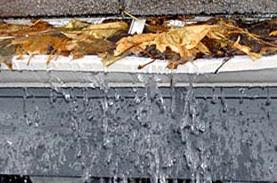
Winter is coming and with it comes colder temperatures that can damage property if you haven’t prepared properly. Follow these 5 tips on how to prepare your property and prevent damage from cold weather.
1. Keep Your Pipes Warm

Winter is coming and with it comes colder temperatures that can damage property if you haven’t prepared properly. Follow these 5 tips on how to prepare your property and prevent damage from cold weather.
1. Keep Your Pipes Warm


 Eric Guggenheimer - SFR, ARM ® » Principal Broker, Certified Property Manager, IREM, ARM, NARPM, NVAR, NAR, VAR
Eric Guggenheimer - SFR, ARM ® » Principal Broker, Certified Property Manager, IREM, ARM, NARPM, NVAR, NAR, VAR